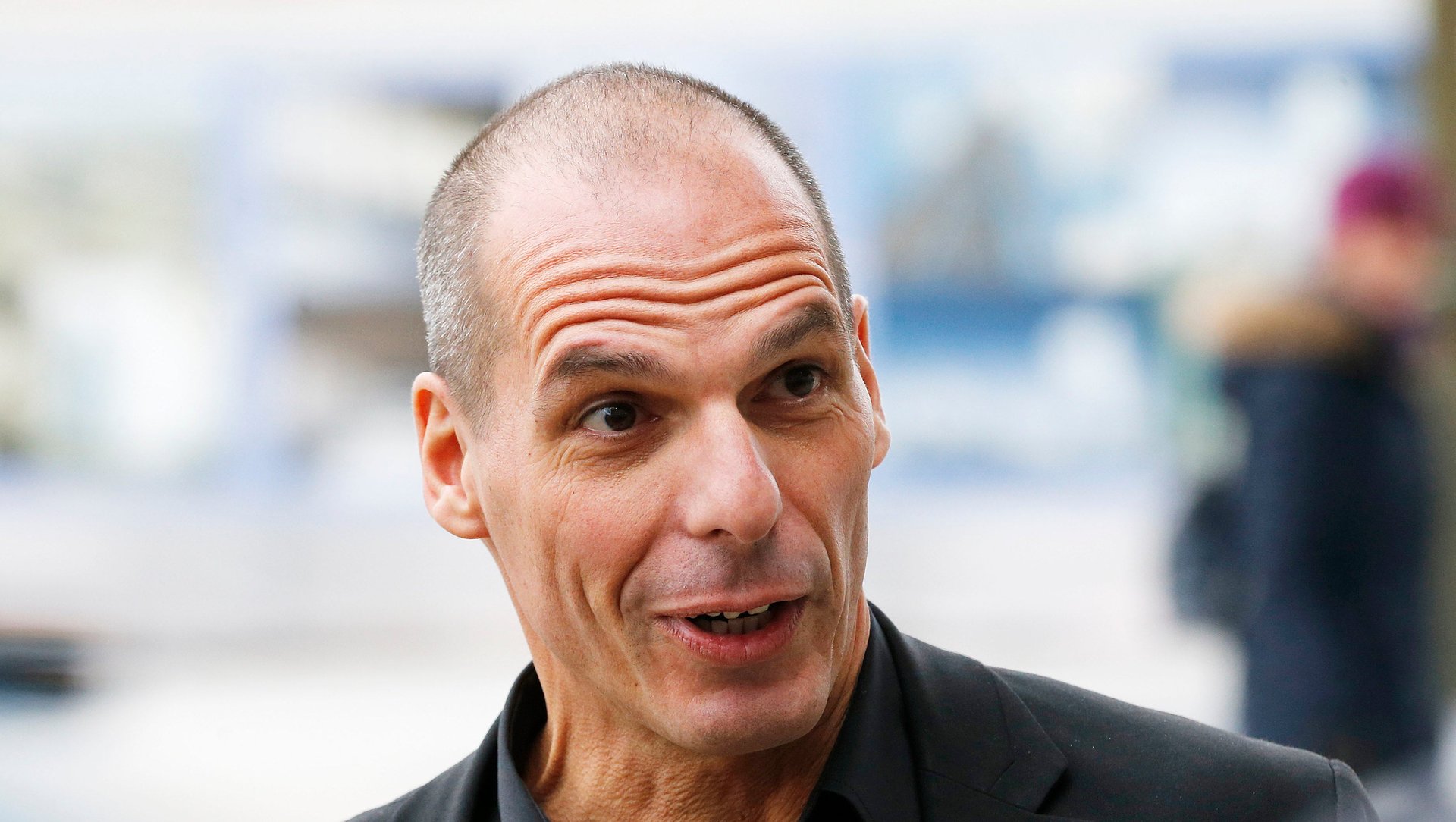Yanis Varoufakis is literally a rebel without a cause
As developments in Greece’s debt crisis reached a crescendo this past week, Greeks have been glued to their television screens, watching all-night parliamentary debates and waiting breathlessly for 17 hours for a decision to be handed down from Brussels. In the midst of this dizzying whirlwind, all eyes have also been on Greece’s former finance minister Yanis Varoufakis, a diversion perhaps from the relentless depressing headlines.


As developments in Greece’s debt crisis reached a crescendo this past week, Greeks have been glued to their television screens, watching all-night parliamentary debates and waiting breathlessly for 17 hours for a decision to be handed down from Brussels. In the midst of this dizzying whirlwind, all eyes have also been on Greece’s former finance minister Yanis Varoufakis, a diversion perhaps from the relentless depressing headlines.
The iconoclastic academic, who made international headlines with his brusque negotiating tactics and unusual fashion sense, led the negotiations up until the morning after the referendum of July 5. Both Varoufakis and prime minister Alexis Tsipras urged Greeks to vote against it—and about 60% of the country did so, handing them a victory. But the next morning, Varoufakis abruptly resigned as finance minister, while retaining his parliamentary seat.
To the disbelief of many Greeks, Varoufakis didn’t show up in parliament on July 10 to cast a vote that authorized the prime minister and his team, including the new finance minister Euclid Tsakalotos, to negotiate a new bailout with the country’s Eurozone partners.
Instead, he left for a vacation to the island of Aegina. His ostensible reason: to spend time with his 11-year-old daughter. Television crews raced to the island to find him—and photos of him poolside at his country villa filled the airwaves and newspaper pages, prompting outrage and even disgust in the country.
“It bothers me a lot that while the prime minister and Euclid Tsakalatos were going through the battle of their lives for our country, he left. I cannot digest the fact that he wasn’t there,” said Sia Anagnostopoulou, a parliamentarian for Syriza, Tsipras’s radical left party, on a televised panel on Mega July 15.
Anagnostopoulou was not alone in her sentiments. In the central Athenian neighborhoods of Zographou and Goudi on July 13, many Greeks were quick to criticize him. “What he did was unacceptable,” said Nikos Tsokaris, 65, shaking his head. “He should have shown up. I could have accepted him [abstaining] but not showing up at all? It shows disrespect.”
In the days that followed, serious debates on TV panels about the coming austerity measures often veered into discussions of the actions of Varoufakis. Not to everyone’s delight. On July 13 in a discussion of the day’s events on Skai TV, Andreas Loverdos, a parliamentarian for the socialist party PASOK and a former minister of education, angrily dismissed the topic. “I came here to discuss the situation of our country, not Mr. Varoufakis,” he said.
Even the prime minister could not escape the issue of the vanishing Varoufakis. On July 14, Tsipras was asked about Varoufakis’s role in negotiations with Europe, during a 70-minute interview with national television station, ERT. He defended his former finance minister, but managed to diss him at the same time, praising him as an academic but implying that not everyone has good pragmatic political skills.
Meanwhile, Varoufakis refuses to go away. He’s tweeting like crazy, updating his blog daily and has written op-eds, including this one in the Guardian. On his blog he called the statement that came out of the Euro Summit on July 12, “a document committing to paper Greece’s Terms of Surrender. It is meant as a statement confirming that Greece acquiesces to becoming a vassal of the Eurogroup.”
Varoufakis has also granted a handful of televised interviews to defend himself for his controversial parliamentary absence. “I had an obligation to an 11-year old girl, who lives in Australia and I get to see once a year,” he told the Mega channel the morning of July 15. “I absolutely did not make a mistake.”
Maybe the criticism is starting to catch up with him. On the afternoon of July 15, as the parliament started to debate the stringent austerity agreement that Tsipras signed off on, Varoufakis did show up to take his seat, shirt tails out.
But he still couldn’t resist the limelight. After midnight, as the vote neared, his name was called. He paused. A long pause. A noticeable one. Then he voted against the measure.